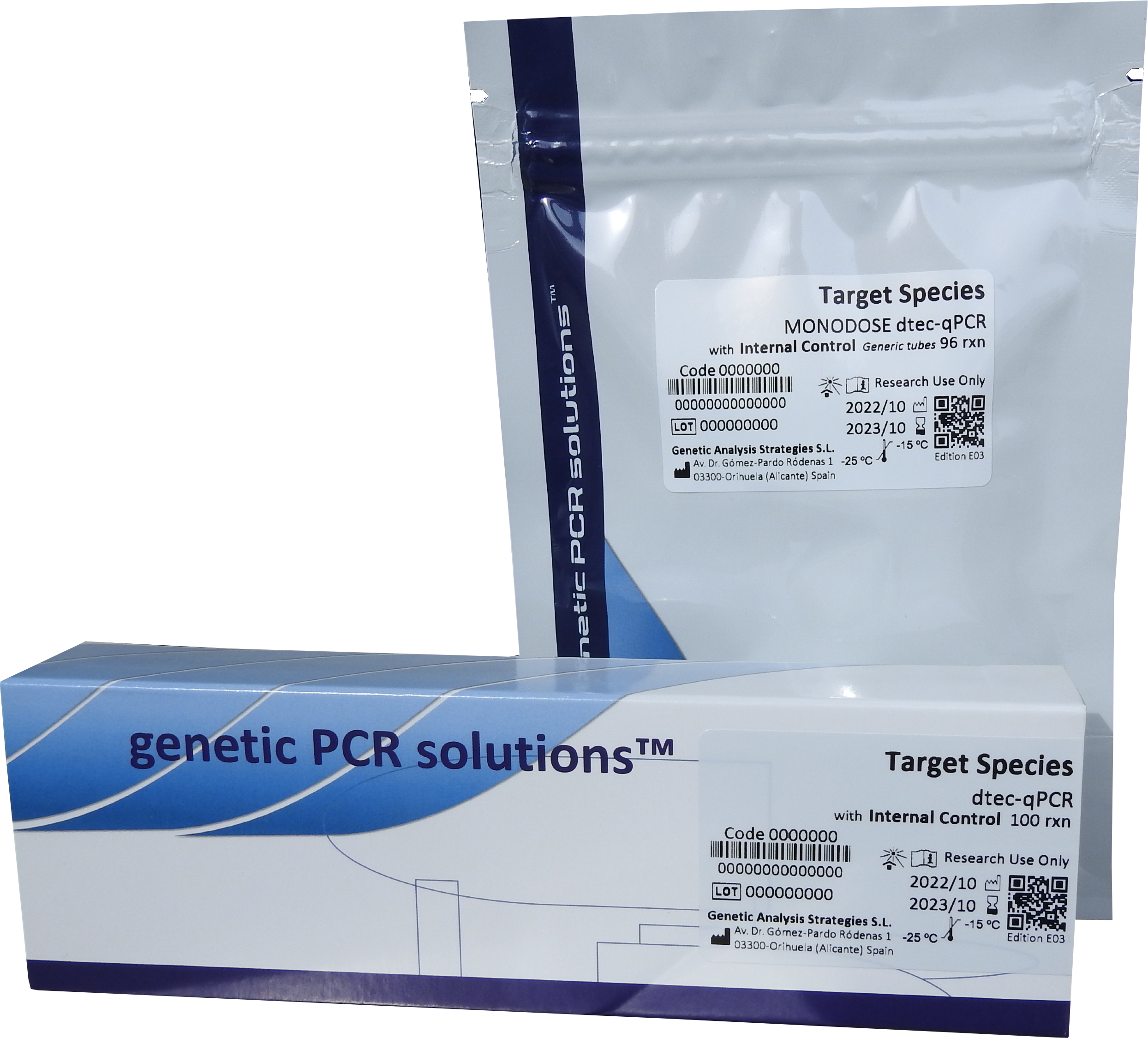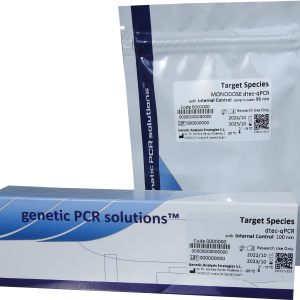Rickettsia spp.
Description
The RicSpp dtec-qPCR comprises a series of species-specific targeted reagents designed for detection of Rickettsia spp. by using qPCR. Rickettsia is a genus of non-motile, Gram-negative, non-sporeforming, highly pleomorphic bacteria. The name rickettsia is often used for any member of the Rickettsiales. They are obligate intracellular parasites: the Rickettsia survival depends on entry, growth, and replication within the cytoplasm of eukaryotic host cells (typically endothelial cells). As a consequence of this, Rickettsia cannot live in artificial nutrient environments but can grow either in tissue or embryo cultures. In the past they were positioned somewhere between viruses and true bacteria. However, Rickettsial organisms possess true cell walls similar to other gram-negative bacteria. Rickettsia species are carried by many ticks, fleas, and lice, and cause diseases in humans such as typhus, rickettsial pox, Boutonneuse fever, African tick bite fever, Rocky Mountain spotted fever, Flinders Island spotted fever and Queensland tick typhus (Australian Tick Typhus). They have also been associated with a range of plant diseases. Despite the similar name, Rickettsia bacteria do not cause rickets, which is a result of vitamin D deficiency.
Kit Content and Prices
GPS™ primers and probes are sold for research use only
All GPS™ Kits are available in F100 and MONODOSE Format
GPS™ reagents are compatible with all qPCR devices



